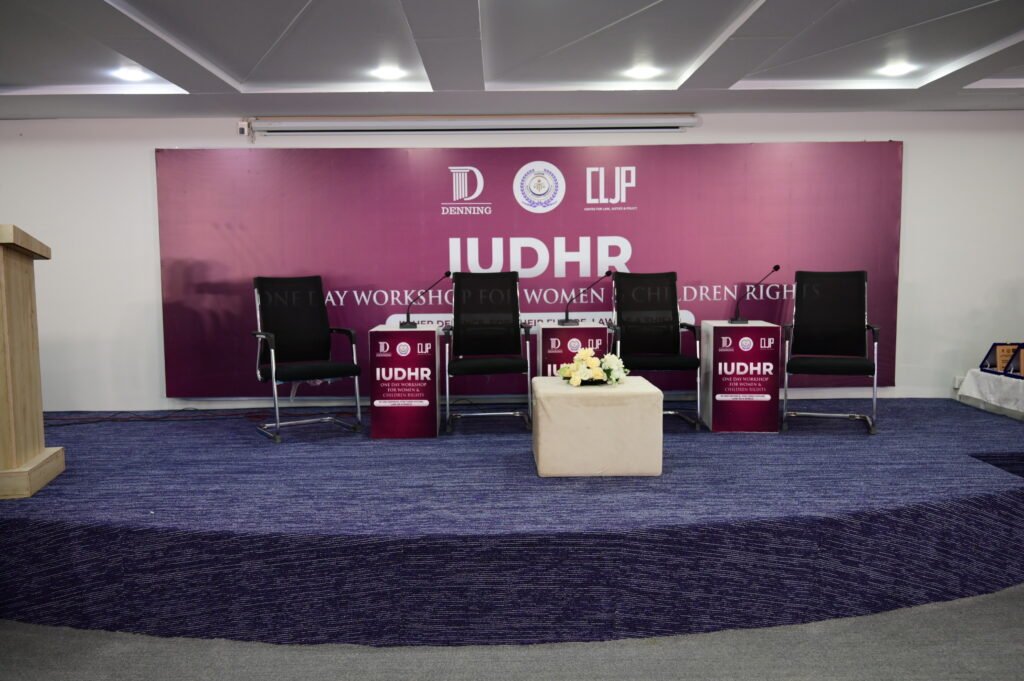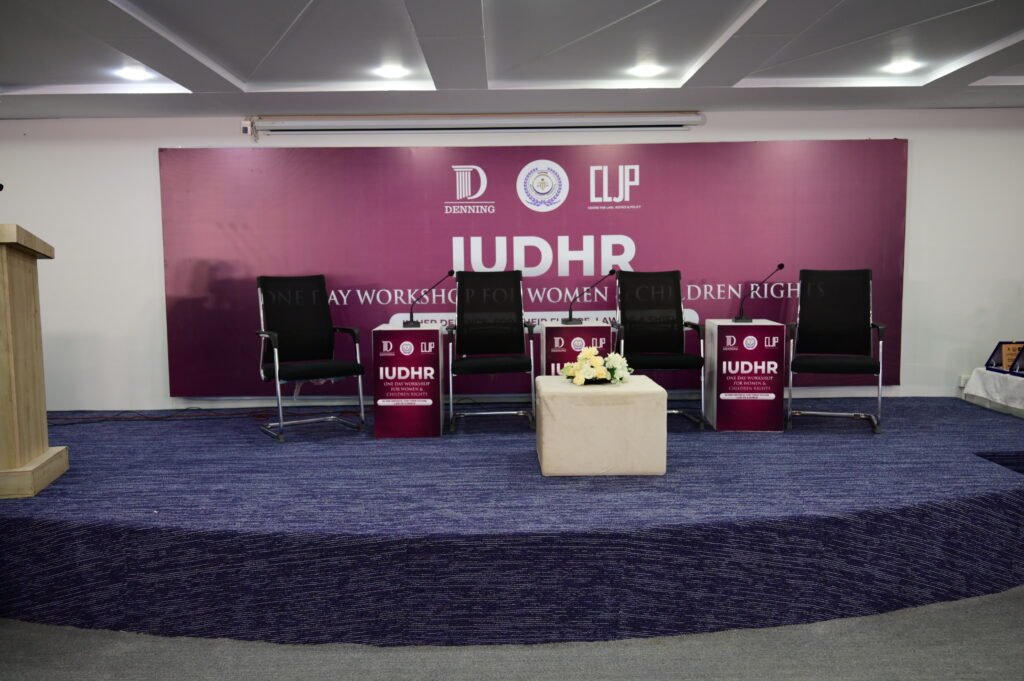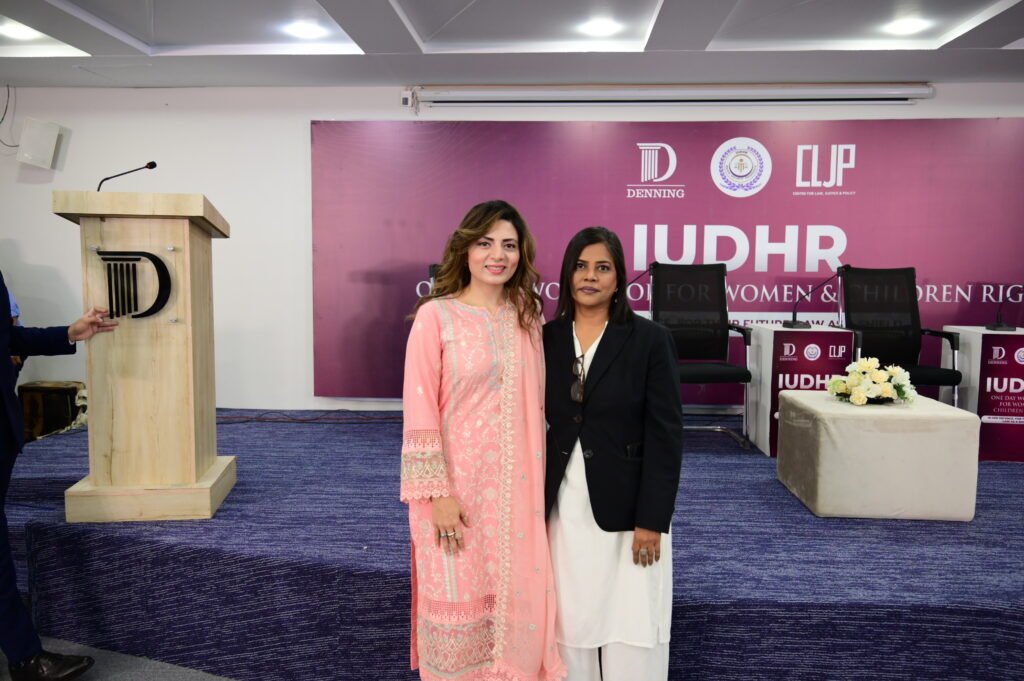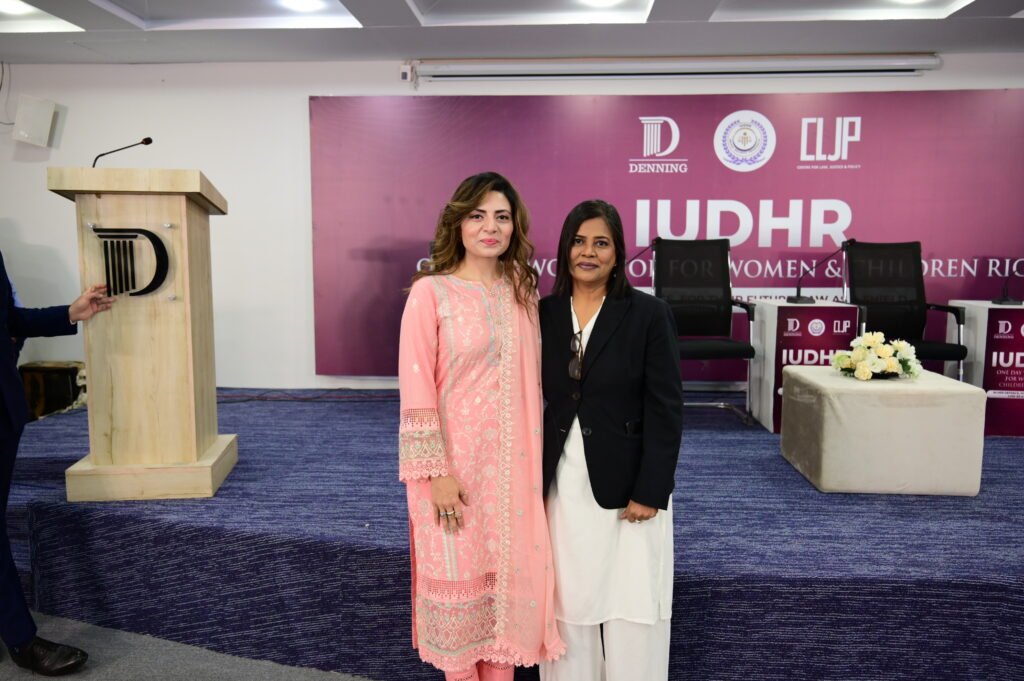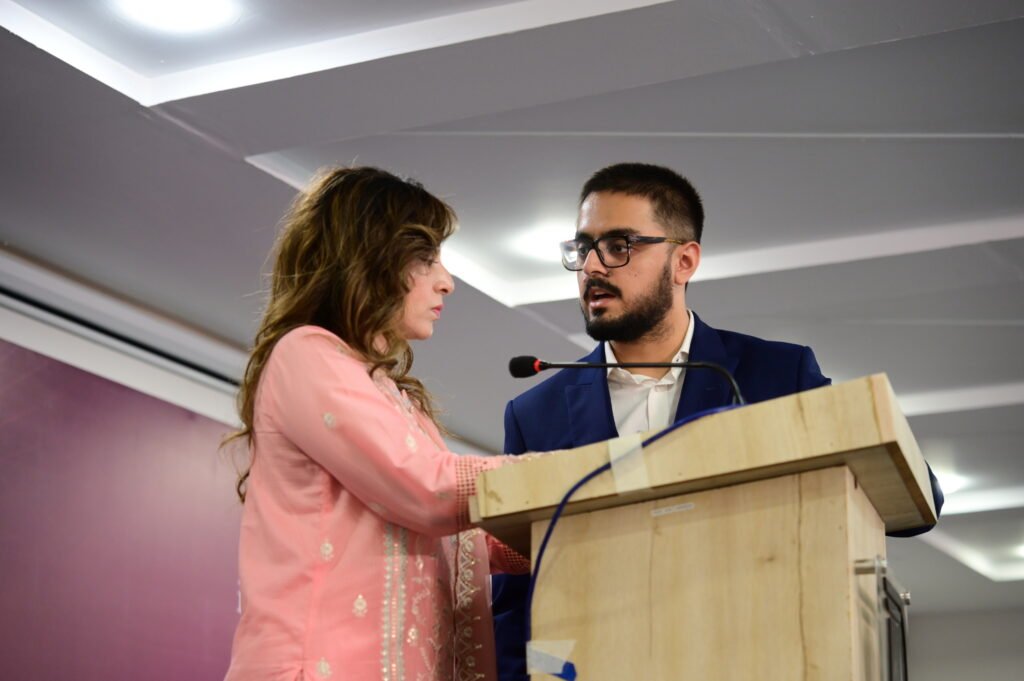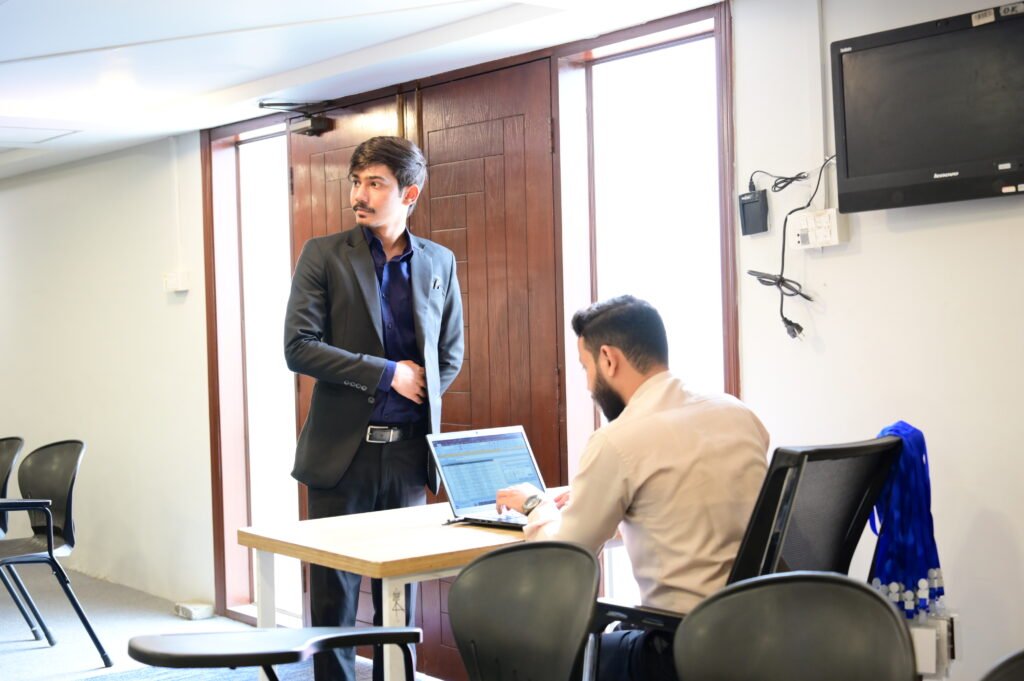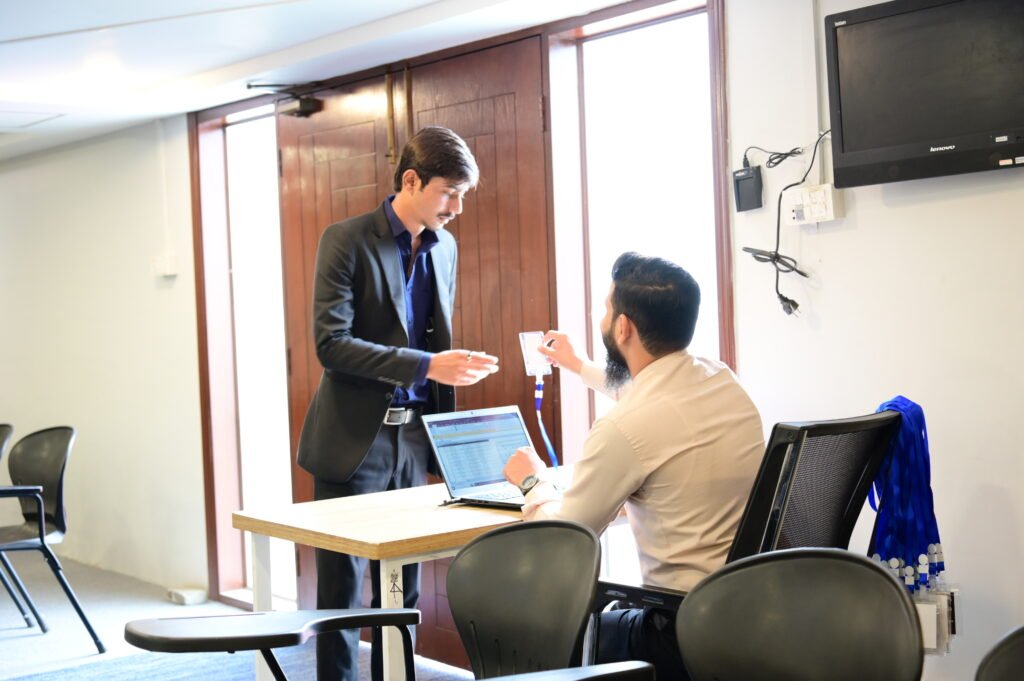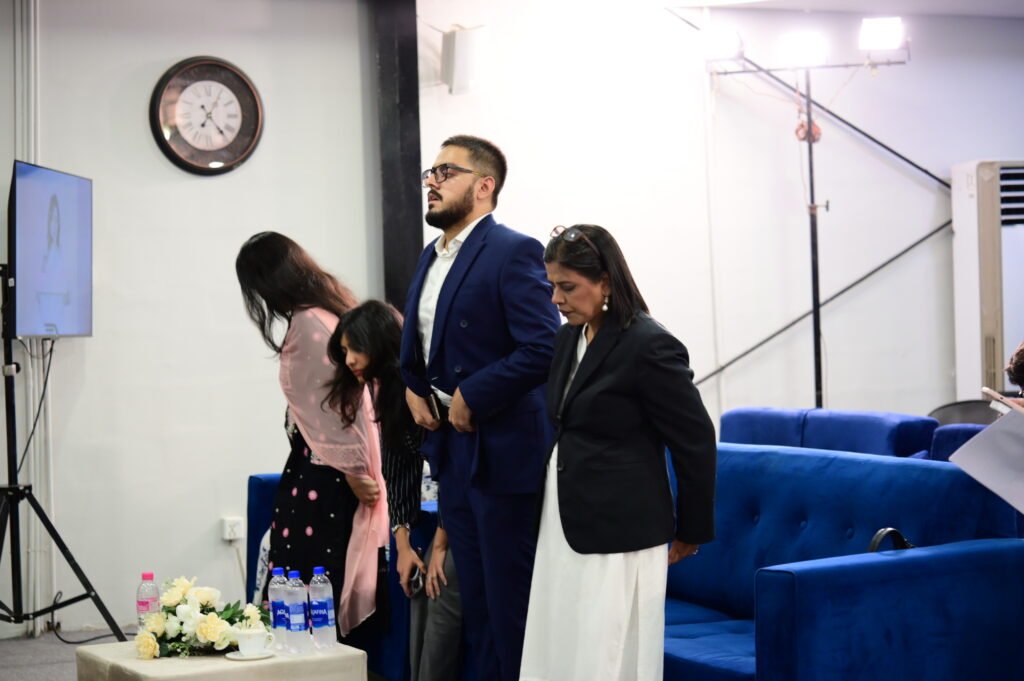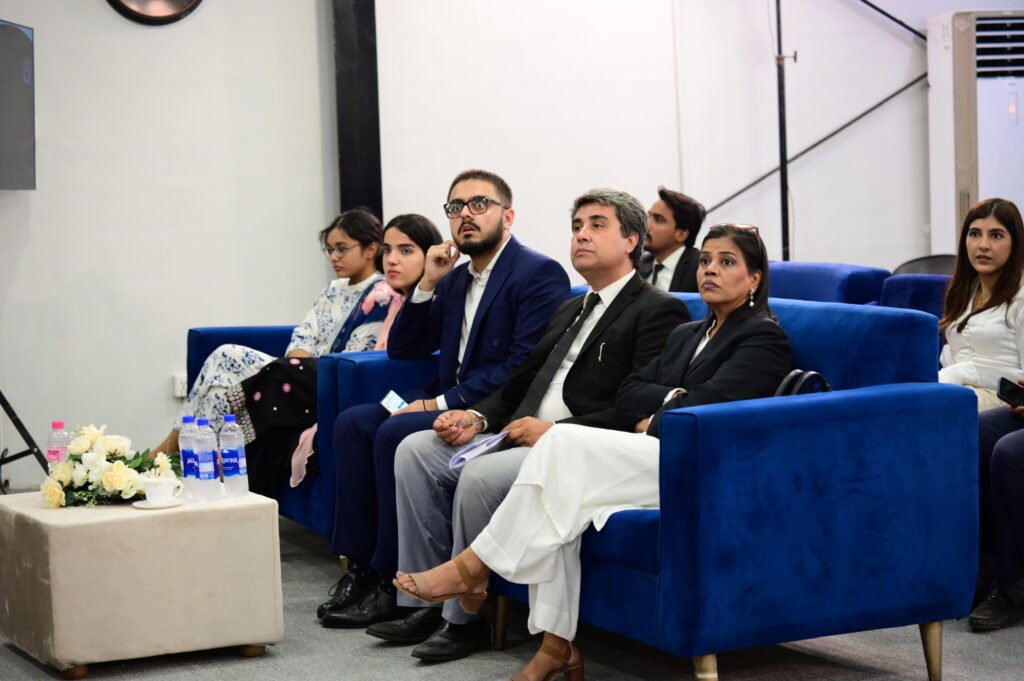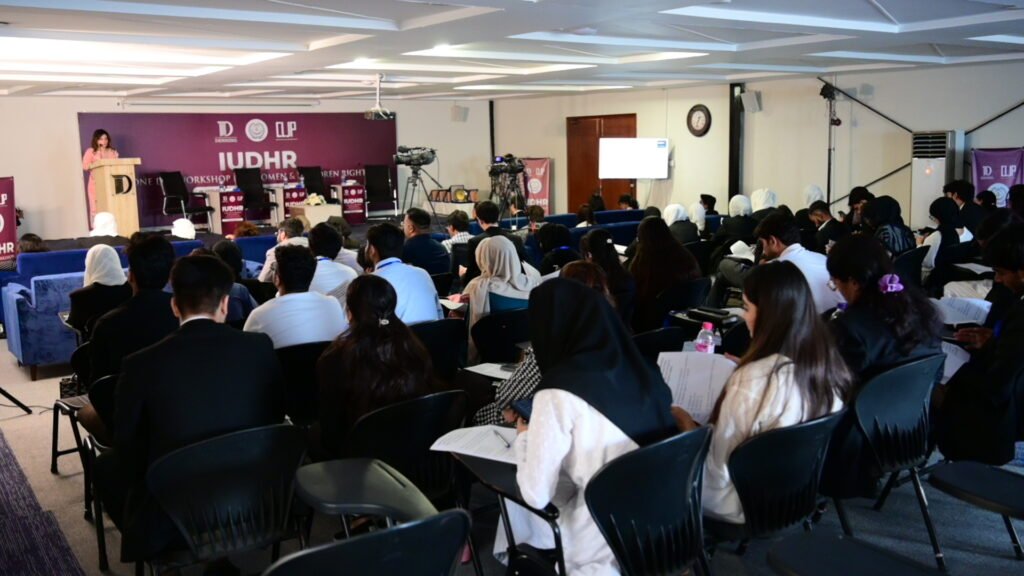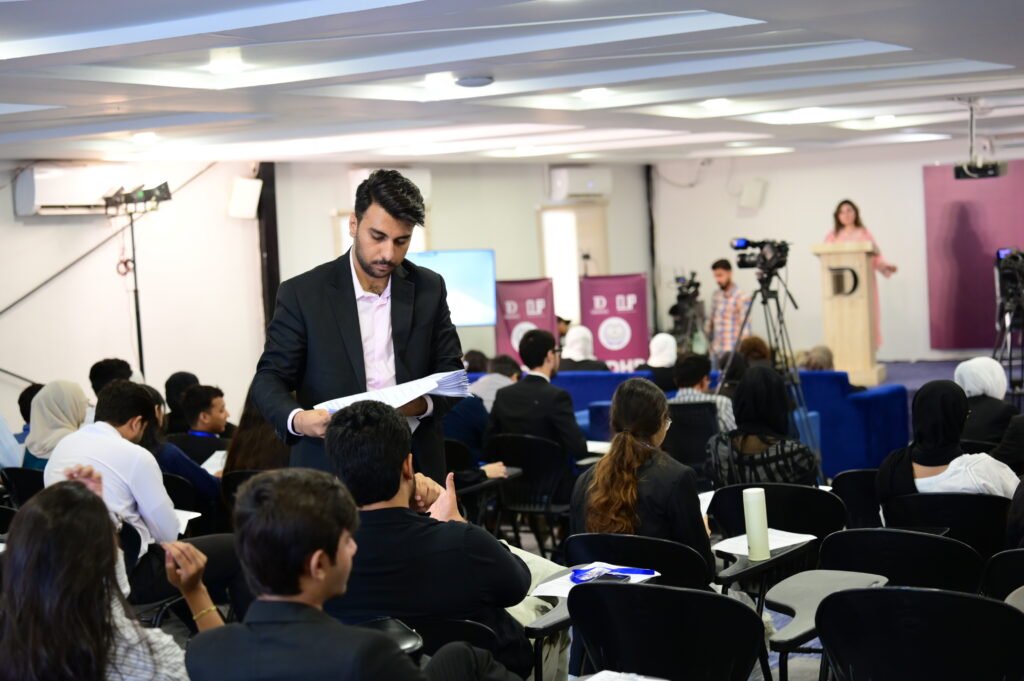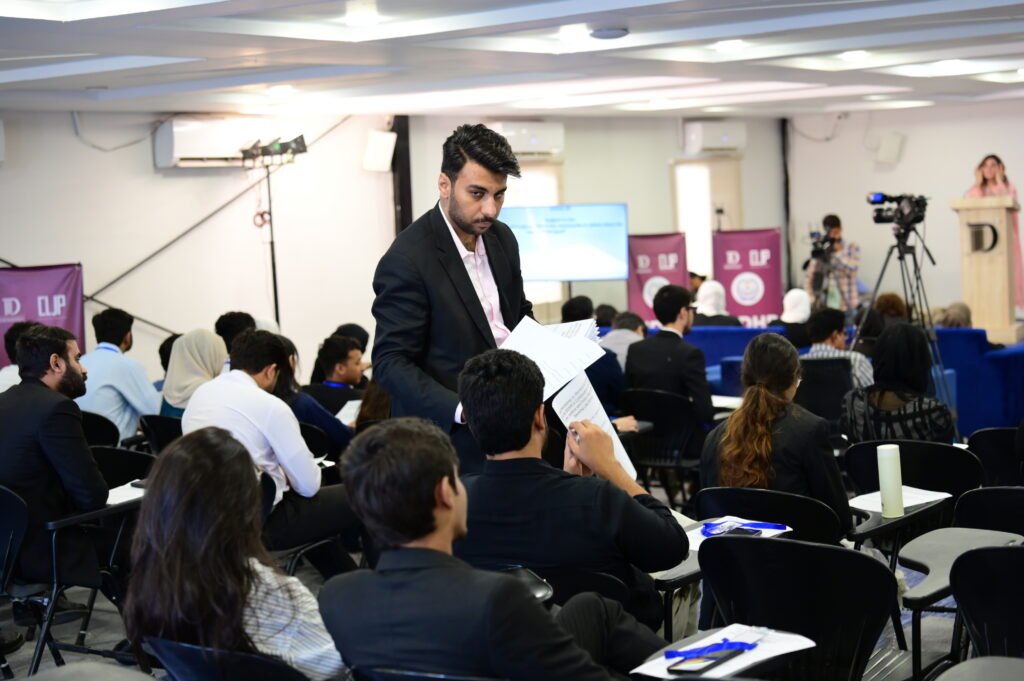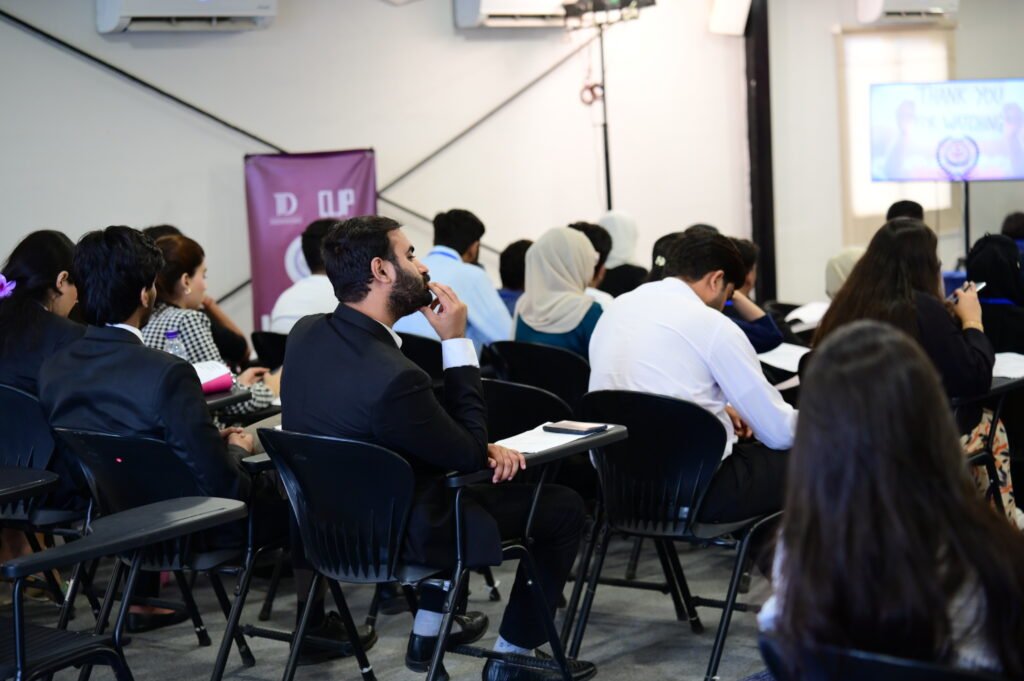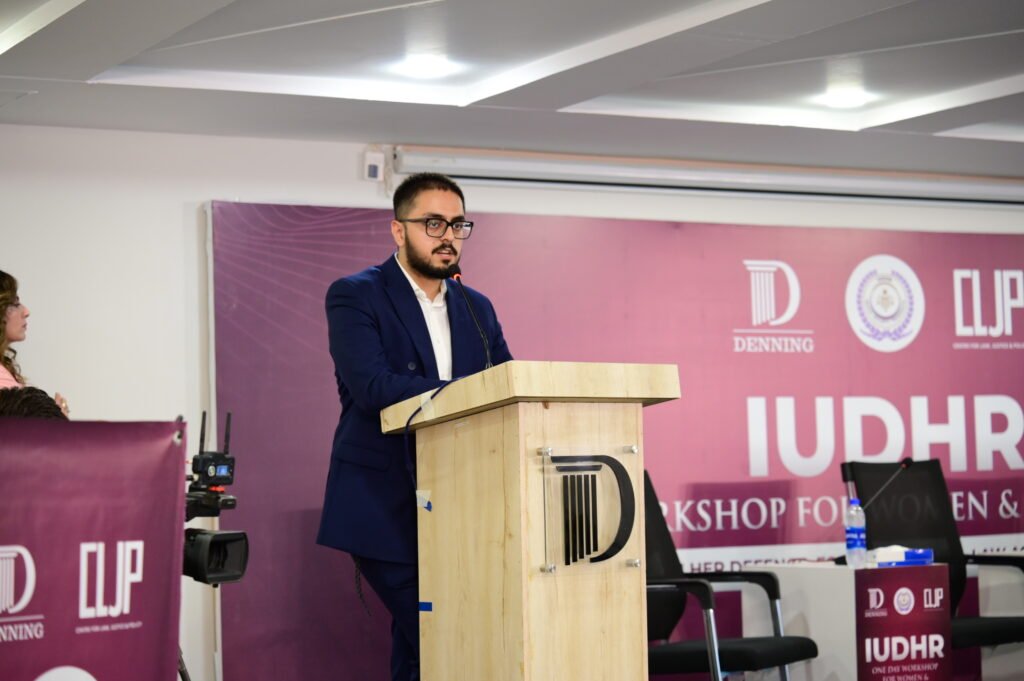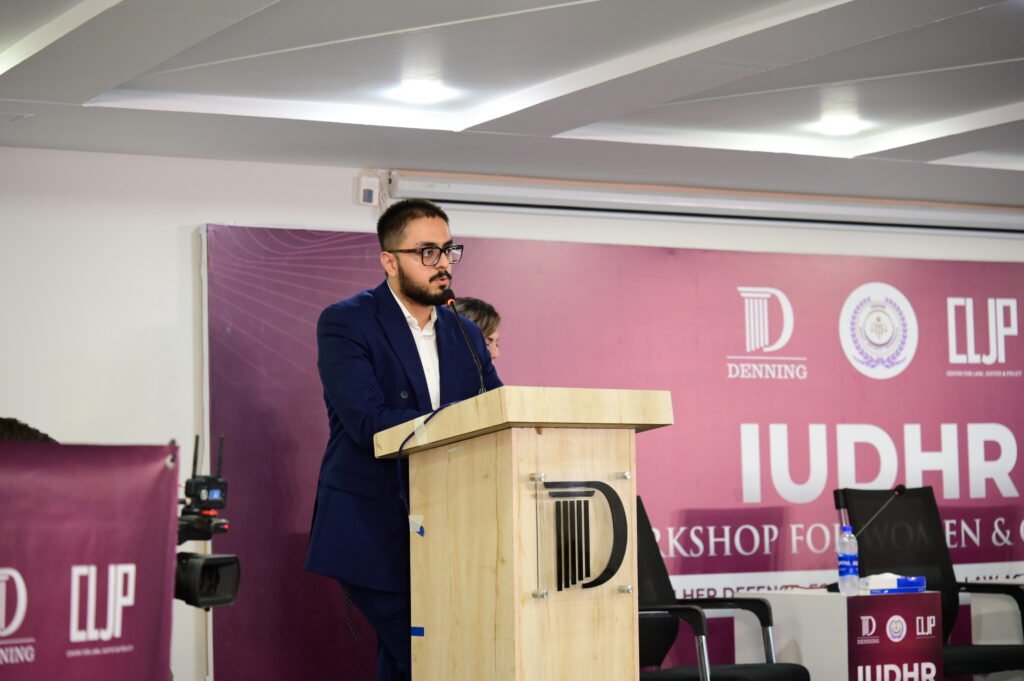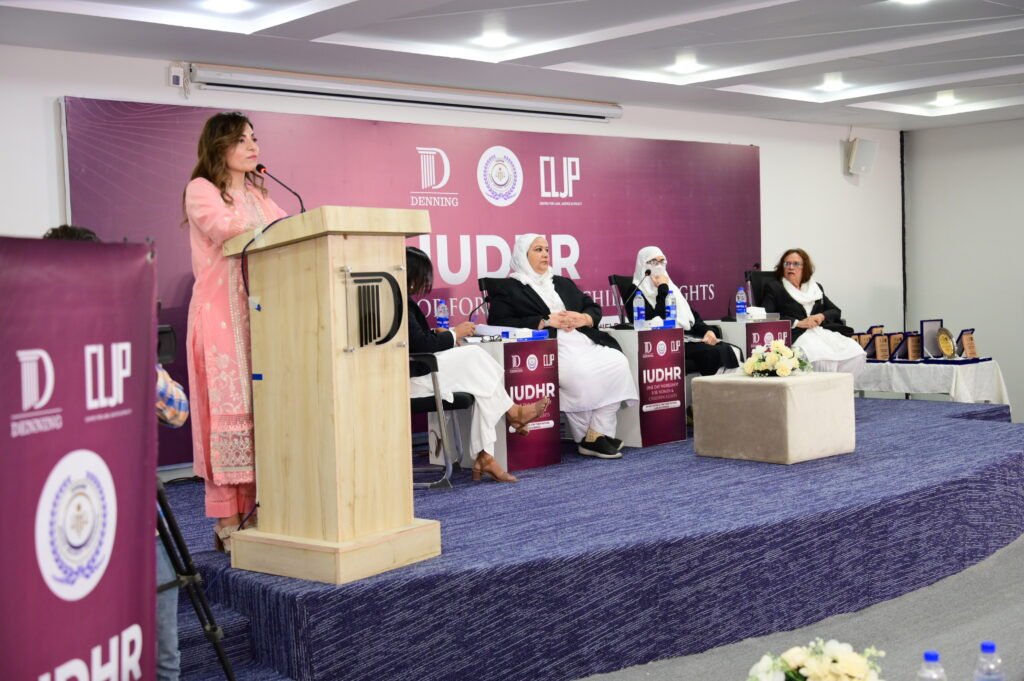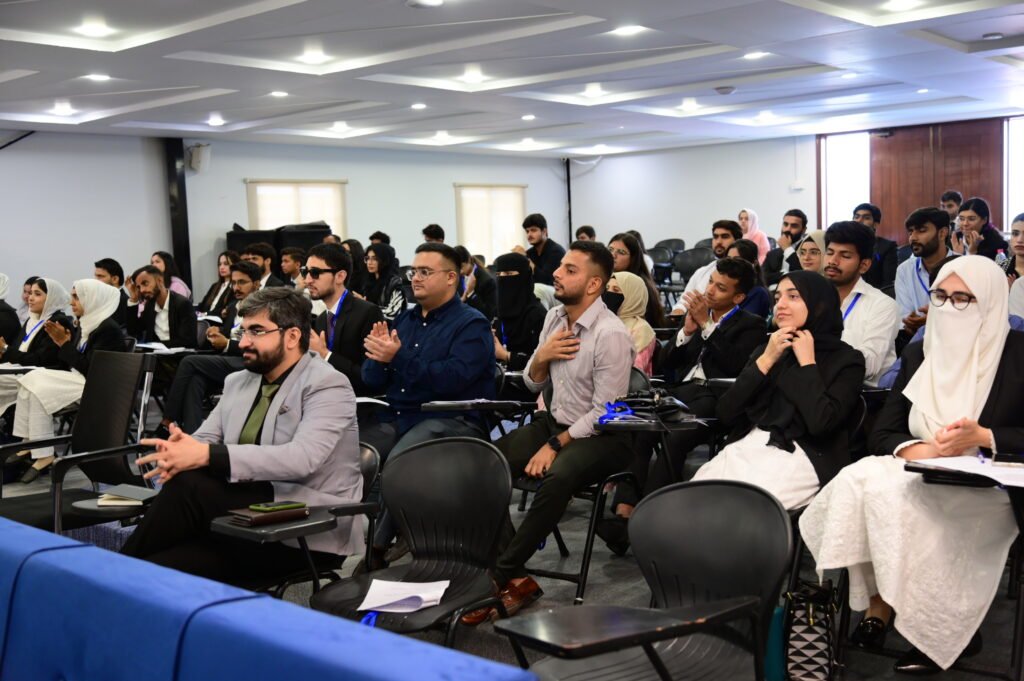Title: Women’s and Children’s Rights in Pakistan
Date: 4th August 2025
Organized by: Centre for Law, Justice & Policy (CLJP) at Denning in collaboration with the Implementation of Universal Declaration of Human Rights (IUDHR)
Venue: Denning PECHS Campus
Introduction
The training workshop, held on 4th August 2025, focused on the rights of women and children in Pakistan, as safeguarded under both national and international law. The workshop was divided into two comprehensive sessions, each featuring expert speakers who addressed key legal frameworks and challenges related to women’s and children’s rights.
The primary aim was to raise awareness and deepen participants’ legal understanding. The event concluded with the distribution of certificates to all attendees in recognition of their active participation.
Participants
Approximately 150 participants attended the training workshop, including law students, human rights advocates, professionals, and legal experts. This diverse group represented individuals from universities, institutions, and legal backgrounds across the region.
Questionnaire Summary
Two papers containing 25 multiple-choice questions (MCQs) were administered, focusing on:
- Fundamental Rights under the Constitution of Pakistan (1973): equality before the law, protection of life and liberty, protection against discrimination.
- Child and Women Protection Laws:
- Juvenile Justice System Act: rights and rehabilitation of juvenile offenders.
- Women’s Protection Acts: legislation ensuring safety and welfare of women.
- Provincial Laws (Sindh and Punjab): specific measures for women and children’s welfare.
- Institutional and Legal Reforms: strengthening frameworks for better enforcement of human rights.
- International Human Rights Law: particularly the United Nations Convention on the Rights of the Child (UNCRC).
Pre-Session Assessment
Before the commencement of the core session on women’s and children’s rights in Pakistan, a pre
session questionnaire was distributed to assess the existing knowledge of the participants. The data
indicated that around 90% of the participants were unable to provide correct answers, highlighting
significant gaps in awareness and understanding of the subject matter.
Training Sessions
The sessions were interactive and engaging, covering:
- Panel discussions with experts and real-life case studies, followed by Q&A.
- Lectures by legal scholars and practitioners on national and international protections.
- Case study analyses reviewing legislation and its practical challenges.
- Participant-centered activities such as evaluations, awareness-building exercises, and collaborative discussions.
Post-Session Assessment
After the sessions, participants were reassessed with similar questionnaires. The results showed significant improvement, with 70% answering correctly, reflecting the effectiveness of the training in building legal literacy and awareness.
Conclusion
The workshop proved to be a valuable platform for capacity-building and legal education on human rights issues. The improvement in participant knowledge demonstrates the importance of such initiatives.
IUDHR and CLJP reaffirm their commitment to justice, equality, and human rights through ongoing collaborative efforts.
Prepared By
This report was prepared by the Centre for Law, Justice & Policy (CLJP) in collaboration with the Implementation of Universal Declaration of Human Rights (IUDHR).
Report Contributors:
- Mr. Muhammad Zaman Khan – Director, CLJP
- Ms. Bushra Sial – Associate, CLJP
- Implementation of Universal Declaration of Human Rights (IUDHR)
